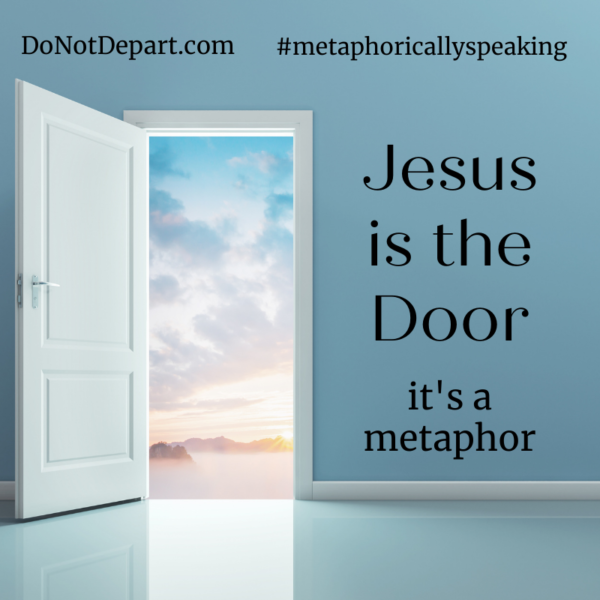Today’s post comes from guest author, Kristee Ravan. Kristee lives in Oklahoma with her husband, three kids, and cat. She keeps busy with homeschooling, twin-wrangling, and supporting her husband’s ministry as a pastor. She has been writing and publishing devotions for several years and has also published two tween novels. Her books, The Cinderella Theorem and Calculating Christmas are available on Amazon.com. Kristee felt a call to be a missionary in childhood which led her to the jungles of Bolivia for two years after college. She was surprised when God called her back to the United States, but has been delighted with the ministry opportunities He planned for her, including supporting foster and adoptive families (and being an adoptive family!), educating others about how trauma affects children, and writing. You can connect with her on her Facebook author page, Kristee Ravan.

John 10 is a fun passage of scripture. My daughter and I memorized verses 7-18 a few years ago as part of our homeschool curriculum. I can still hear the scripture song in my head whenever I review this section.
On the surface, we get what Jesus is saying right away. He is the good shepherd. He lays down His life for us. There are wolves and things out there in the world, but the good shepherd is protecting us and giving us abundant life.
But I’m not frequenting sheep pens or caring for these animals in my regular life. Do we miss part of this metaphor about who Jesus is because we are so far removed from first-century shepherding?
He starts the metaphor in verse 7. “So Jesus again said to them, ‘Truly, truly, I say to you, I am the door of the sheep.’” (John 10.7, ESV)
Jesus had to say it again to them because His initial parable was not understood (verse 6). So He tried to make it clearer in a metaphor, comparing Himself to the door of the sheep.
The context for this metaphor is found earlier in chapter 9. Jesus had healed (on the Sabbath!) a man who had been born blind. The newly-sighted man wound up in hot water with the Pharisees because he was going around telling people Jesus had healed him. They banned the man from the synagogue and when Jesus heard about it, He visited the formerly-blind man and confirmed for him that he was the Son of Man and told (in the hearing of some of the Pharisees) the parable that wasn’t understood (John 10:1-5).
What was Jesus trying to clear up when He said, “I am the door of the sheep”? Did He just mean He was the way?
By kicking the no-longer- blind man out of the synagogue, the Pharisees had blocked his access to God. They were acting as a door to God. So when Jesus uses the door to the sheep metaphor, He is saying He is the door. He will decide who has access to God.
Comparing Himself to the door of the sheep was something His listeners would have understood. Sheep and shepherds were ubiquitous at this time.
The door of the sheep was found on a sheep pen, usually made with stone walls. In the evenings, the shepherd would bring his sheep there to rest safely. As they entered through the opening—one at a time, the shepherd used his rod to stop them so he could examine them for injuries.
After all the sheep were in, the shepherd would lie across the opening, using his own body as the “door of the sheep.” This prevented predators from getting in and sheep from getting out. The sheep were completely in the shepherd’s care, trusting him for their protection and security.
What a lovely image of our Savior that is! By understanding the metaphor as it would have been in ancient times, we see so much more than just “Jesus is the way.” We see a kind and careful shepherd, who puts Himself in danger to protect us.
But “all we like sheep have gone astray” (Isaiah 53.6), and we don’t always feel satisfied with just a shepherd as our door. We look for other doors to protect us, to offer us security. Maybe a relationship will finally give us that peace we seek? Or maybe we seek financial security from a job—but it leaves us with little time to serve the kingdom? Trusting these doors will not lead to the abundant life Jesus promised in verse 10.
Only through Him can we find true fulfillment, meaning, and abundant life.

Join the Discussion